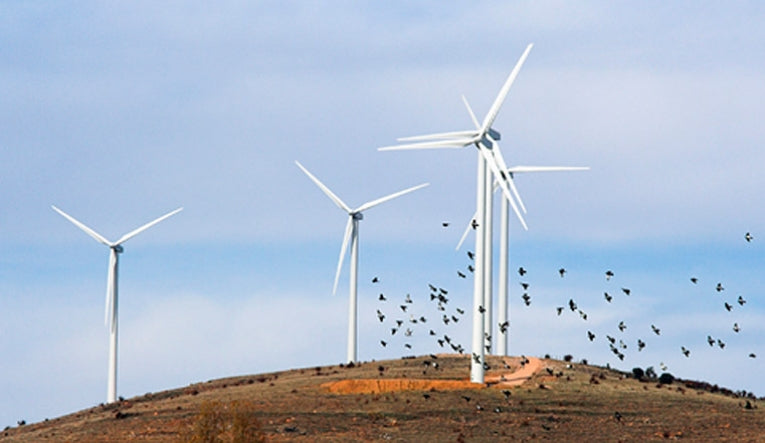Maine-based non-profit ecological research group Biodiversity Research Institute (BRI) has established a new wildlife and renewable energy program to study and understand the movements of birds and bats and to assess the potential interactions between energy facilities and wildlife.
"Careful siting of renewable energy development may play a key role in minimizing impacts to wildlife," says David Evers, Ph.D., BRI's executive director and chief scientist, "however, this requires detailed knowledge of where animals breed, winter, and migrate." The new program is dedicated to addressing this need; BRI is currently involved in several areas of wind power research and marine spatial planning in the eastern United States.
Since 2009, BRI wildlife biologists have studied the migration and movement patterns of birds and bats over the Gulf of Maine and elsewhere along the Atlantic coast. The Institute's researchers have documented that migratory owls fly over open water, taking advantage of islands as stopover sites, and that migratory falcons will fly hundreds of miles out over the Atlantic on their way south to the Caribbean and South America. This information could be important to understanding how migrating birds and bats might be affected by offshore structures, such as wind turbines.
"Wind developers and wildlife managers in both the U.S. and Europe have called for the collection of pre-construction monitoring data to minimize the potential impacts of facilities on wildlife," says Kate Williams, director of BRI's wildlife and renewable energy program. "This can be a hot-button issue, but BRI's main goal is to provide sound scientific data to decision makers and the public to inform debate on siting and other issues. We don't have a pro- or anti-wind agenda."
Part of BRI's mission is to provide scientific data that will help inform policy and regulatory decisions. The wildlife and renewable energy program includes ongoing research projects in coordination with other BRI programs and in cooperation with many other organizations including state and federal agencies, non-profit organizations, and universities. A few examples of current studies include research on the movements of several species of sea ducks, bat migration and habitat use in New England, and raptor migration in coastal Maine.
To help make information accessible to policy makers and to the general public, BRI will host a two-day workshop and public presentation about areas of scientific consensus regarding the ecological effects of offshore wind power. The event, scheduled for November 8-9, 2011, at the University of Southern Maine in Portland, will include presentations by prominent European researchers who are at the forefront of research on wind power issues.
Biodiversity Research Institute is a non-profit ecological research group dedicated to progressive environmental study and education that furthers global sustainability and conservation policies. The organization believes that wildlife serve as important indicators of ecological integrity. BRI works with state and federal agencies to band and monitor the health and ecology of birds throughout the United States, as well as in regions around the world.
Top image: © Arturo Limon | Dreamstime.com










